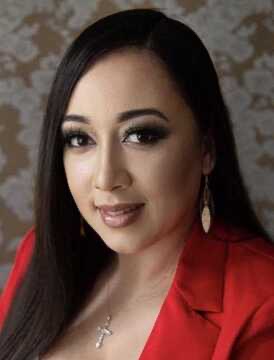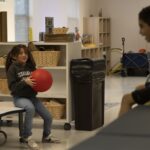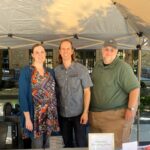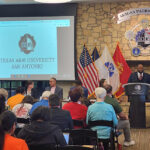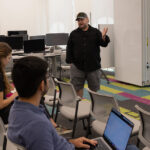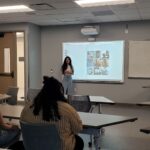Victims of sex trafficking need better support systems, advocates said on Jan. 23 in a Zoom webinar hosted by Texas A&M University-San Antonio.
Cyntoia Brown-Long, author of “Free Cyntoia: My Search for Redemption in the American Prison System,” discussed her personal story and the need for long-term support for victims of sex trafficking at the virtual Anti-Human Trafficking Conference.
“We place a lot of emphasis on rescuing youth from situations,” Brown-Long said. “But, we need to have a serious conversation about what comes after that.”
Brown-Long became a victim of sex trafficking at the age of 13. When she was 16, she was sentenced to life in prison in Tennessee for killing a man who solicited her for sex.
She said she shot Johnny Allen in self-defense when he appeared to look for a gun, according to NPR and other news reports. Prosecutors argued her motive was robbery, noting that she fled in Allen’s truck with his guns and money.
After Brown-Long served 15 years, then-Gov. Bill Haslam commuted her sentence in 2019 amid a flurry of support from celebrities such as Rihanna and Kim Kardashian West.
Advocates say the sentence was too harsh for a teenage victim of sex trafficking. Brown-Long said the issues that led to her living on the streets began in school.
“(My school) labeled me as having a bad attitude,” Brown-Long said. “If any of my teachers, guidance counselors or my principal would have talked to me, maybe they would have found out that I didn’t have an attitude 一 but that I just felt out of place.”
In order to identify and help victims, communities must understand that sex trafficking comes in different forms and avoid victim-blaming language and terms such as “teen prostitute.”
“We tend to profess in one instance that minors don’t have the capacity to consent to sex with adults,” Brown-Long said. “But when someone comes along that doesn’t meet the definition of a perfect victim, all that goes out the window.”
There are many misconceptions of sex trafficking, she said. Not all victims are “snatched off the streets” and there isn’t always a trafficker behind each one. In some cases, when institutions intervene to help, there is more harm done than good.
“The majority of commercially exploited youth have followed a path marked by multiple missed intervention points, and the failings of the institutions and communities in charge of looking out for them,” Brown-Long said.
Society needs to take further steps to help victims, Brown-Long said. Advocates must address the factors that create victims of sex trafficking, hold institutions accountable for letting them “slip through the cracks” and create “positive relationships” with them.
“If we’re going to effectively fight sex trafficking in America, we have to think beyond sting operations and white van watch parties,” Brown-Long said. “We need to actually mend the systems that are feeding it.”
After Brown-Long’s presentation, several breakout rooms were hosted, including “Pathways to Relational Health and Safety” by Catherine E. Love-Washington, counselor at the Student Counseling Center, and officer Karen Tucker-Engel of the University Police Department’s Office of Victim Services and Crime Prevention. They provided tips on identifying different forms of abuse and characteristics of healthy relationships.
- Healthy relationships have boundaries, communication and contribute to a sense of well-being.
- Toxic relationships wear individuals down and make them feel insecure and degraded.
- Consent needs to be voluntary and continuous in order to engage in sexual activities. It should never be assumed based on relationships.
- Abuse can come in the forms of physical, emotional, economic, verbal, cyber, academic, sexual and power-based.
For more information or to receive help for non-emergencies, contact the Student Counseling Center or visit the University Police Department at https://www.tamusa.edu/upd/ovs/index.html
This story was updated on Jan. 29 at 11:49 a.m. to provide additional information on Brown-Long’s case.

